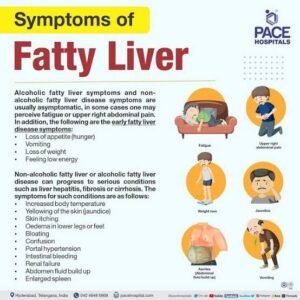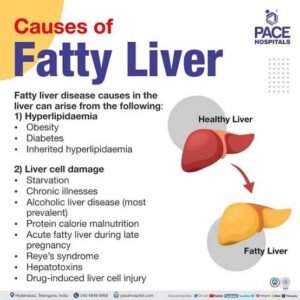
Fatty liver disease, characterized by the abnormal accumulation of fat within liver cells, is becoming increasingly prevalent in modern society. The liver, a vital organ responsible for detoxifying blood, aiding digestion, and storing nutrients, can become compromised when excess fat builds up. This condition is broadly classified into two categories: alcoholic fatty liver disease (AFLD) and non-alcoholic fatty liver disease (NAFLD). AFLD is primarily associated with excessive alcohol consumption, while NAFLD occurs in individuals who do not consume alcohol or do so in moderation.
- Weakness.
- Loss of appetite.
- Nausea.
- Yellow skin and eyes (jaundice)
- Itching.
- Fluid buildup and swelling in the legs and abdomen.
- Mental confusion.
- GI bleeding.
The occurrence of fatty liver disease is on the rise, influenced by factors such as obesity, sedentary lifestyles, unhealthy diets, and metabolic disorders like diabetes and insulin resistance. NAFLD, in particular, is often considered an epidemic, affecting millions of individuals globally. Research indicates that up to 25% of adults in certain regions may exhibit signs of this condition, with a correlation emerging between rising rates of obesity and the incidence of fatty liver disease.
Risk factors associated with fatty liver disease include obesity, high cholesterol levels, and diabetes, making certain individuals more susceptible to this condition. Moreover, certain demographic factors, such as age and ethnicity, play a critical role in determining risk levels. Failure to address fatty liver disease can lead to serious complications, such as steatohepatitis, liver fibrosis, and cirrhosis, each carrying significant health implications.
Recognizing the symptoms and understanding the underlying risk factors associated with fatty liver disease is crucial for early detection and prevention. Early intervention can greatly minimize the risk of developing these severe complications and improve overall liver health.
Why Does Fatty Liver Attack?
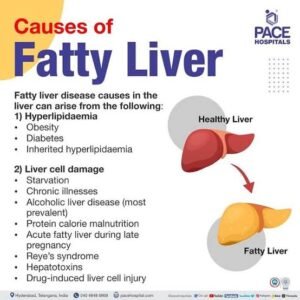
Fatty liver disease, characterized by the accumulation of excess fat in liver cells, stems from a complex interplay of lifestyle choices, metabolic factors, and genetic predispositions. One primary cause is poor dietary habits, particularly the consumption of high-calorie foods rich in sugars and saturated fats. These dietary patterns lead to excessive calorie intake, which the body stores as fat, primarily within the liver. Consequently, individuals with diets low in essential nutrients and high in processed foods are at an increased risk of developing fatty liver disease.
Physical inactivity also significantly contributes to the condition. Lack of exercise hinders the body’s ability to metabolize fats effectively, leading to their storage in the liver. Regular physical activity is crucial not only for maintaining a healthy weight but also for improving overall metabolic health. When combined with a poor diet, sedentary behavior exacerbates the risk of obesity, a significant factor associated with fatty liver disease.
The role of alcohol consumption in the development of fatty liver disease cannot be understated. Excessive intake of alcoholic beverages alters liver metabolism, resulting in increased liver fat deposition. This progression can lead to alcoholic fatty liver disease, which can reach a severe stage if drinking habits are not modified. Moreover, beyond lifestyle factors, metabolic issues such as insulin resistance play a critical role in fat accumulation within the liver. Insulin resistance disrupts the normal metabolism of glucose and fats, further promoting liver fat deposits.
Additionally, genetic factors may predispose certain individuals to fatty liver disease, with specific genes influencing fat storage and metabolism. Environmental triggers, including exposure to toxins and certain medications, can also exacerbate the condition. These combined influences illustrate the multifactorial nature of fatty liver disease, highlighting the importance of addressing both lifestyle and genetic factors in prevention and management strategies.
Preventing Fatty Liver Disease
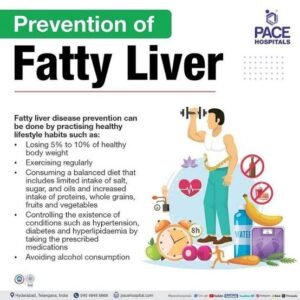
Fatty liver disease can significantly impact overall health, but implementing specific preventive measures can mitigate its development. Key lifestyle changes play a vital role in this process, with a particular emphasis on adopting a balanced diet, engaging in consistent physical activity, and achieving a healthy weight. These foundational changes help promote liver health and reduce the chances of fatty liver disease.
- lose weight – safely. …
- lower your triglycerides through diet, medication or both.
- avoid alcohol.
- control your diabetes, if you have it.
- eat a balanced, healthy diet.
- increase your physical activity.
- get regular check-ups from a doctor who specialises in liver care.
A balanced diet is essential in the prevention of fatty liver disease. Individuals are encouraged to consume foods rich in omega-3 fatty acids, which are known for their anti-inflammatory properties and ability to improve liver function. Sources of omega-3s include fatty fish such as salmon, walnuts, and flaxseeds. Additionally, incorporating fiber-rich foods—such as whole grains, fruits, and vegetables—can aid in digestion and promote overall metabolic health.
“Drinking warm water with lemon in the morning can help in reducing the layer of fat on the liver and help in detoxifying the system. Apart from that, it helps in better digestion and boosts liver functioning.”

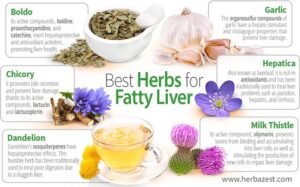
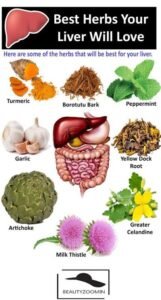
Fatty liver disease can be managed with natural drinks like green tea, lemon water, beetroot juice, and black coffee, which help reduce liver fat deposits. Regular consumption of these drinks, along with a balanced diet and healthy lifestyle, may lead to improved liver health within two weeks.
Milk is good for liver and improves insulin sensitivity, which is crucial for individuals with fatty liver and insulin resistance. The presence of calcium, vitamin D, and proteins in milk may contribute to enhancing insulin function and managing fatty liver disease.
It is also crucial to limit the intake of added sugars and refined carbohydrates, which can contribute to fat accumulation in the liver. Foods such as sugary beverages, white bread, and processed snacks should be consumed sparingly. Focus should be directed towards whole, unprocessed foods that nurture the body and support liver health.
Regular physical activity is another critical component in preventing fatty liver disease. Engaging in aerobic exercises, strength training, or even moderate activities such as walking can help individuals maintain a healthy weight. Losing even a modest amount of weight can significantly reduce liver fat and improve overall health markers. https://ashrafshahin.com
Lastly, routine health check-ups and monitoring of liver function are imperative for anyone at risk for fatty liver disease. These proactive strategies can facilitate early detection and intervention, ensuring that individuals maintain optimal liver health. By implementing these lifestyle changes and engaging in ongoing health monitoring, the risk of developing fatty liver disease can be minimized considerably.
Natural Immunity and Remedies for Fatty Liver
Maintaining optimal liver health is crucial, especially for individuals managing fatty liver disease. Natural remedies can play a significant role in promoting liver function and, subsequently, overall health. Among the most renowned herbal supplements is milk thistle, which contains silymarin, a compound known for its liver-protective properties. Studies suggest that milk thistle may aid in reducing inflammation and guarding against liver damage, making it a popular choice for supporting metabolic processes. Another effective herb is dandelion root, which is considered beneficial for stimulating bile production and improving digestion. Incorporating these supplements into your daily routine can enhance liver health and help mitigate the effects of fatty liver disease.
In addition to herbal remedies, a nutrient-rich diet is pivotal for strengthening the immune system and promoting liver health. Foods high in antioxidants, vitamins, and minerals can significantly benefit the liver’s detoxifying ability. For instance, incorporating leafy greens such as spinach and kale, which are packed with nutrients like vitamin K and folate, can help reduce fat accumulation in the liver. Additionally, fruits like berries and citrus are excellent sources of antioxidants that combat oxidative stress in the liver.
Hydration also plays a key role in liver function. Drinking adequate amounts of water supports the liver’s detoxification processes, helping flush out toxins and excess fats. Furthermore, managing stress through practices like yoga, meditation, or regular physical activity can contribute to overall well-being, assisting the body in maintaining a robust immune system. These lifestyle habits can be instrumental in managing fatty liver disease while fostering better liver health. Emphasizing natural remedies and making informed dietary choices create a holistic approach to combating this condition. https://ashrafshahin.com
